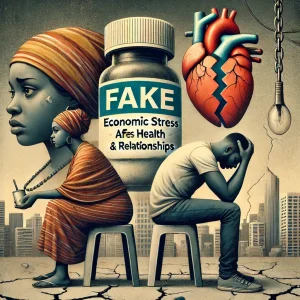
Recently, the disease once known as "monkeypox" has undergone a significant rebranding. Now referred to as "mpox," this change has raised questions and sparked interest, particularly among Nigerians who have faced outbreaks of the disease in recent years. This article explores the critical differences between "mpox" and "monkeypox" and what these changes mean for Nigerians.
- The Reason Behind the Name Change
The World Health Organization (WHO) officially adopted the name "mpox" in 2022 to reduce the stigma associated with the term "monkeypox." The original name carried negative connotations and led to misconceptions about the disease's origins and transmission. By renaming it "mpox," health authorities aim to create a more neutral, less offensive term that avoids perpetuating harmful stereotypes.
- Reducing Stigma and Misconceptions
The term "mpox" is part of a broader effort to encourage people to seek medical help without fear of judgement or discrimination. The name "monkeypox" often led to incorrect associations with monkeys as the primary carriers of the virus, which is not the case. This misconception fuelled unnecessary fear and stigma, particularly in communities where the disease was more common. The adoption of "mpox" aims to dispel these harmful ideas, fostering better public understanding and cooperation in fighting the disease.
- The Shift in Official Use and Communication
Globally, "mpox" is increasingly used in scientific literature, public health communications, and international organisations like WHO. For Nigerians, official reports, health advisories, and educational materials will increasingly refer to the disease as "mpox." It's important to note that while the name has changed, the disease remains the same. The virus that causes mpox is identical to the one that caused monkeypox; only the name has been updated to reflect a more sensitive and accurate approach.
- Impact on Public Awareness in Nigeria
In Nigeria, "monkeypox" is still the more widely recognised term. However, as "mpox" becomes more common, efforts will focus on educating the public about this change. During the global outbreak of 2022-2023, many people worldwide, including in Nigeria, were affected by the disease. Rebranding to "mpox" is part of a more extensive campaign to provide up-to-date, accurate information that helps people protect themselves and their communities.
- Addressing Geographic and Social Sensitivity
The name "mpox" also reflects sensitivity to geographic and social issues. In the past, the term "monkeypox" was sometimes unfairly associated with Africa, where the disease was first identified in humans - this led to harmful stereotypes and a lack of understanding about how the disease spreads. Adopting the term "mpox" aims to prevent these associations and promote a more accurate view of the disease that does not target any particular region or group.
Conclusion
Understanding the transition from "monkeypox" to "mpox" is essential for Nigerians. This change is not just about language; it's about fostering a healthier, more informed society where people feel safe seeking medical care and discussing health issues without fear of stigma. As "mpox" becomes the standard term, we must embrace this change, stay informed, and continue to take precautions to protect our health and the health of our communities.





